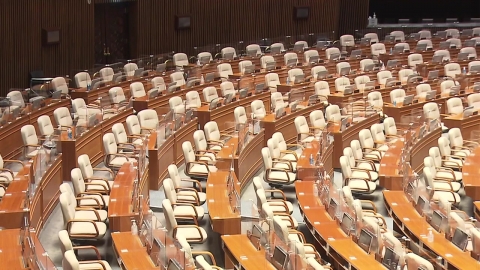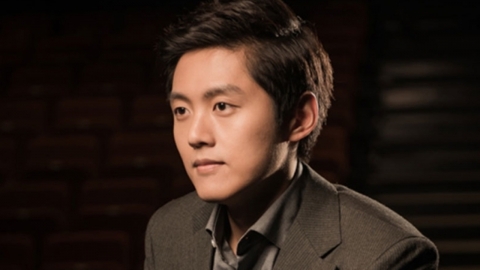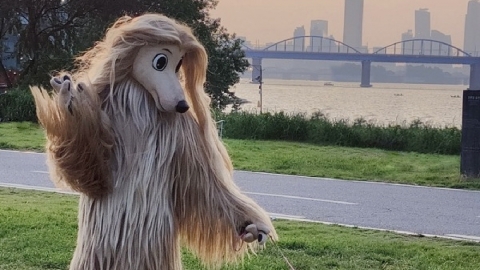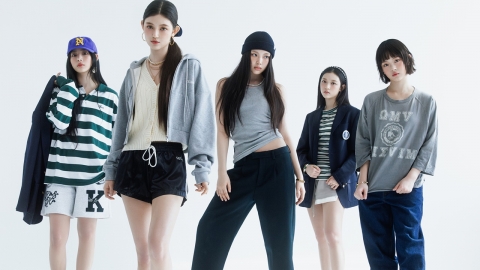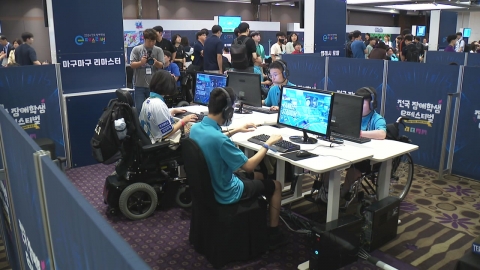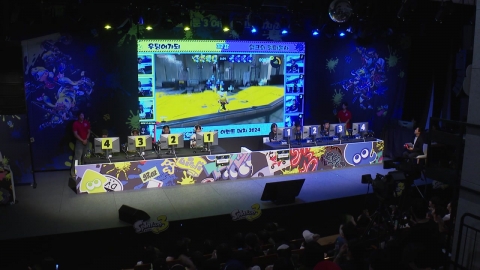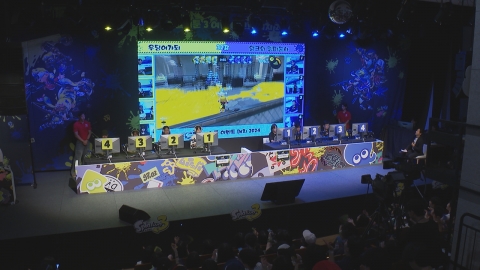□ Broadcast date and time: 09/04/2024 (Wednesday)
□ Host: announcer Park Gui-bin
□ Castor: Lee Yong-wook, senior vice president of the Democratic Party of Korea,
* The text below may differ from the actual broadcast content, so please check the broadcast for more accurate information.
◆ Announcer Park Gui-bin (hereinafter referred to as Park Gui-bin): It's wise self-governing life time. It's time to find out what the local council is doing to make our neighborhood a good place to live. Today, let's call Lee Yong-wook, the senior vice president of the Democratic Party of Korea of Gyeonggi-do Province. Hello, Senator.
◇Lee Yong-wook, Senior Vice President of the Democratic Party of Korea (hereinafter referred to as Lee Yong-wook): Yes, hello.
◆Park Gui-bin: Yes, can you say hello to our wise radio listeners and provincial residents first?
◇Lee Yong-wook: Hello, I'm Lee Yong-wook from Paju, Democratic Party of Korea, the Economic and Labor Committee of the Gyeonggi Provincial Council. I'm really happy to meet the listeners and provincial residents through this wise radio life. We always listen to the voices of the residents and do our best to improve the quality of life of the residents. I hope we can communicate together and have a good time today.
◆Park Gui-bin: Yes, nice to meet you. It's Senator Lee Yong-wook. He's a member of the Gyeonggi Provincial Council. He's an investment man. Are you also working as a tax accountant?
◇ Lee Yong-wook: Yes, that's right.
◆Park Gwi-bin: You must be busy. If you used to be a tax accountant, you're an economic expert. How can you become a tax accountant and then become a politician? Have you made up your mind?
◇Lee Yong-wook: I've been working as an active tax accountant for 20 years this year. The reason why I became interested in the society that I entered politics was the Hyosun and Miseon incident that occurred in Paju in 2002. At that time, it was a tragic case in which two middle school girls were killed by a U.S. armored vehicle, but the request for a proper fact-finding or trial was not accepted at the time. At that time, according to the South Korea-U.S. SOFA regulations, Korea could not even have jurisdiction. In the trial, where all the judges and jurors were active-duty U.S. soldiers, the perpetrator who eventually died in the case of Hyo-soon and Mi-sun was found not guilty. So, through this incident at the time, I felt a lot of injustice and inequality in our society, and it became an opportunity to pay close attention to social issues.
◆Park Gui-bin: I see. Looking at it, you have experience as a tax accountant, a city council member, and a provincial council member, but the first half of the Gyeonggi-do Provincial Council has passed. What do you think of life as a provincial councilor?
◇Lee Yong-wook: Personally, it's very rewarding. It's true that you feel a great sense of responsibility, but sometimes you have a hard time. In particular, in the second half of the year, he was appointed as the senior vice president of the Democratic Party of Korea of Gyeonggi-do Provincial Council, and he is dealing with various projects such as education, safety, culture, and education in Gyeonggi-do in addition to the issues related to the Economic and Labor Commission, and is working hard to negotiate politics. I'm having a very busy time every day, but it's true that it's very rewarding.
◆Park Gui-bin: Your hometown is Paju. You are also doing political activities in Paju and I think you have a lot of affection for your district. What do you think? What kind of place is it in Paju?
◇Lee Yong-wook: Yes, first of all, Paju is my hometown. It's a place where I have a lot of memories and affection for my school days. In the case of Paju, there are also beautiful natural scenery such as Imjin River and Gamaksan Mountain. There are more colorful and rich cultural assets than any other city in the metropolitan area, such as Imjingak and Heyri Artist Village, a publishing city in Paju.
◆Park Gui-bin: You must have watched the development of Paju. Have you changed a lot in the meantime if you are from your hometown? Paju?
◇Lee Yong-wook: Paju used to be a county when I was young, but now it has grown into a large city of 500,000 people. There are many of Paju's most pending projects these days, but I think the relocation of the Gyeonggi-do Economic Science Promotion Agency to Paju is very important. It is also true that there are difficulties because the relocation of the progress center was decided in 21 years and years have passed, but a proper blueprint has not yet been released. The relocation of the Gyeonggwon should create jobs and synergize the local economy not only in Paju but also in northwestern Gyeonggi Province, but it is regrettable in that regard, so we have been continuously urging the relocation of the Gyeonggwon while conducting a five-minute free speech, question-and-answer session, and administrative audit. In Paju, the number of students has increased a lot because there are many young couples with the establishment of Unjeong New Town, and the elementary and high schools are also lacking, so we have communicated these contents through provincial questions and regularly discussions with the provincial education office and the Paju Office of Education, making various efforts to help residents and our children grow into a good city to live in.
◆Park Gui-bin: You explained the current issues in Paju, your district. You pointed out the current issue of relocating Paju, Gyeonggi-do Economic and Science Accelerator, and the establishment of a new school. Isn't Paju the northern part of Gyeonggi-do? When it comes to northern Gyeonggi-do, I'm also curious about the establishment of the northern Gyeonggi Special Self-Governing Province. How is it going now?
◇Lee Yong-wook: In September last year, he declared a vision to establish a special autonomous province in northern Gyeonggi Province. Since then, we have gone through the process of collecting opinions from residents more than 100 times, including polls and briefing sessions, to draw consensus among residents. The Gyeonggi-do Provincial Council also formed a special committee for the establishment of a special self-governing province in northern Gyeonggi-do in July 2023 to urge the government to establish a special self-governing province in northern Gyeonggi-do and hold a referendum. It has been engaged in activities such as urging the enactment of a special law for the establishment of a special self-governing province in northern Gyeonggi Province. Gyeonggi Province has requested the Ministry of Public Administration and Security to approve the referendum so that it can hold a referendum to establish a special autonomous province in northern Gyeonggi Province, but it is also true that it has become difficult to proceed recently.
◆Park Gui-bin: I see. If you say the reason why you have to do it, what can you pick?
◇Lee Yong-wook: It is true that Gyeonggi-do, especially in the northern part of the country, has been delayed due to many overlapping regulations such as metropolitan area regulations, military regulations, and environmental protection regulations. Nevertheless, it is also alienated from the policy because it is a metropolitan area. Representatively, the gross regional product index is 37.5 million won nationwide as of 2020. In southern Gyeonggi Province, it's 41.46 million won, whereas in northern Gyeonggi Province, it's 24.96 million won. It is true that the gross domestic product index in northern Gyeonggi Province is lower than the national average and that it is lagging. According to the area distribution of industrial complexes that create jobs and revitalize the local economy, there are only 53 in northern Gyeonggi Province, compared to 138 in southern Gyeonggi Province. The area is more than 10 times larger in southern Gyeonggi-do than in the north. So, if northern Gyeonggi-do is designated as a special autonomous province, it will be able to receive a lot of authority and functions in the administrative and financial sectors. If that happens, I think we can ease Chinese regulations and establish development strategies tailored to regional characteristics to strengthen the foundation for development in northern Gyeonggi Province.
◆Park Gwi-bin: Yes, I see. Senator, let me also ask you about the bill you recently proposed. As far as I know, a total of four ordinances have passed the plenary session by proposing the social economy package ordinance on behalf of the party. What is this ordinance about?
◇ Lee Yong-wook: Yes, the social economy package ordinance is a basic social economy ordinance that presents macro directions and policies for fostering and revitalizing the social economy. Three activation support ordinances were created for each social economy organization so that customized support can be provided in consideration of the characteristics of social enterprises, village enterprises, and cooperatives.
◆Park Gui-bin: How many social enterprises are there in Gyeonggi-do?
◇Lee Yong-wook: As of December 2023, there are 6,864 social economy companies in Gyeonggi-do. There are 982 social enterprises, 4,860 cooperatives, 241 village enterprises, and 171 self-supporting enterprises in the country, and there are the second most social enterprises after Seoul. Social enterprises are also active in various fields. It mainly provides welfare services for certain socially disadvantaged people, such as children and the elderly with disabilities, and is also engaged in activities such as revitalizing the local economy and solving social problems, so it is engaged in various social value creation activities.
◆Park Gui-bin: Yes, you recently attended the 2024 Gyeonggi Social and Economic Fair. What kind of seat is this?
◇Lee Yong-wook: When the government announced the 4th Basic Plan for Social Enterprises in 2023, it changed the direction of support for social enterprises to self-sufficiency. In this process, social enterprises now tend to shrink their activities. To give strength to those people, we held an economic and social economy fair, and if we continue to talk about 2024, a total of 189.9 billion won was cut in five ministries when looking at the adjustment of state funds related to social economy. In preparation for the 14.9 billion cut in state funding, Gyeonggi Province has set up budgets to support social economic organizations in the 2024 main budget and communicate with the site as social enterprises' support for social insurance premiums, business development costs, and now budget support for regional specialized projects are all cut.
◆Park Gui-bin: Is the current budget or support status insufficient?
◇ Lee Yong-wook: Actually, it's not enough. Unlike general commercial companies, social economic organizations are more difficult than general commercial companies because they do not just pursue profits, but also create social values by providing social services for the underprivileged. So, we need appropriate support for that, but as the support decreases, it is currently having a lot of difficulty in operating.
◆Park Gui-bin: I see. If a member of the National Assembly proposed an ordinance bill and this ordinance is implemented, how will it be done to foster support for social and economic enterprises?
◇Lee Yong-wook: Yes, according to the Ordinance, a basic social and economic development plan will be established to set mid- to long-term goals and directions for social and economic development. The ordinance stipulates that social economic organizations can reduce the rent or usage fees of public property, so that social economic organizations can achieve a healthy ecosystem. In addition, each organization supports joint cooperation projects between social economy organizations, such as fostering professional manpower, capacity-building education, product and service promotion support, and social economy organizations. Isn't it important to communicate with organizations involved in the social economy? For such regular communication, we are now organizing various discussions with each party to form a working-level council for each social enterprise village enterprise cooperative to reflect the voices of the field in the policy. In this process, we are still making efforts to fully capture the voices of social organizations in metropolitan areas and cities and counties.
◆Park Gui-bin: Yes, why do you think social enterprises are essential in our society?
◇Lee Yong-wook: Our society is getting more and more polarized. Although the economy has developed, it is true that the quality of life and happiness of ordinary people do not increase that much, and people who accumulate wealth become richer and richer, but poor people are more worried because the structure seems to be fixed. In addition, it is regrettable that such things as population, enterprise, and infrastructure are concentrated in large cities, causing local extinction and collapsing of communities. I think the social economy is the most realistic alternative to this marginalized social and regional problem. Also, the country's financial resources and manpower are limited. As a result, it is also true that we cannot supply all the social services needed by the region. I think that the best service to fill this gap is now through social economy organizations.
◆Park Gwibin: I see. During the parliamentary activities of the Gyeonggi Provincial Council in the second half of the year, we talked briefly at the beginning again, but he was listed as a representative of the Democratic Party. You will be working as the senior deputy general manager. How do you plan your legislative activities for the second half of the year?
◇Lee Yong-wook: For me, our second half is the theme of communication and cooperation. Based on that communication and cooperation, we are making efforts to focus on harmony within the party and now on bringing about harmony in our parliament. Regardless of political ideology or partisanship, I will also do my best to become a Gyeonggi-do council that works for the residents through open dialogue and close cooperation with lawmakers within our council. In addition, the motto of our parliament is that it is a people-centered, people-centered parliament, and we will do our best to realize it and to communicate with the residents on the spot and implement the policies that come out of it.
◆Park Gui-bin: As expected, you value communication and cooperation. You don't have time to work as a delegation in the second half of the year, so how can you invest?
◇Lee Yong-wook: Since I've been operating our office for about 20 years, the office itself is very stable now. So now, our employees in the office have recognized the value of what I do, so we are working hard by sharing roles with each other.
◆Park Gui-bin: Yes, but you have to go to the office sometimes.
◇ Lee Yong-wook: We have to go.
◆Park Gwibin: I see. When we interview Gyeonggi-do lawmakers like this, there's a question I always ask. Usually, each person has a song that's a very important turning point in my life or gives me strength. So I was wondering what songs the MPs would have as the songs of my life. That's what I'm asking. What's your favorite song of my life?
◇Lee Yong-wook: Many people know it because it's a national movie insert song, but it's a butterfly that gives hope and courage. Even if there is a shabby moment like a tree that has fallen after being roughly blocked by the world, it is meaningful to overcome the ordeal with solidarity and love and spread the wings widely, so I think this song will be a boost for me, but I think it will also be a hope for our Gyeonggi residents who are in trouble now.
◆Park Gui-bin: I see. Butterfly was your life song. I see. I'll tell you the song in a minute. Please listen to it together. Lastly, please say something to our residents.
◇Lee Yong-wook: Gyeonggi residents, Chuseok is coming up. Have a happy time with your family and loved ones. I hope you have a rich Chuseok. I will do my best to make Gyeonggi Province happier and better to live in. We will listen to the voices of the provincial residents and make such changes that can be felt by reflecting those voices in the policy. We will always communicate with the provincial residents with sincerity and open mind. Please visit Gyeonggi-do at any time and visit the Gyeonggi-do Council. Thank you.
◆Park Gui-bin: Yes, this has been Lee Yong-wook, the senior deputy leader of the Democratic Party of the Gyeonggi-do Assembly. Senator, thank you.
◇Lee Yong-wook: Thank you.
[Copyright holder (c) YTN Unauthorized reproduction, redistribution and use of AI data prohibited]


